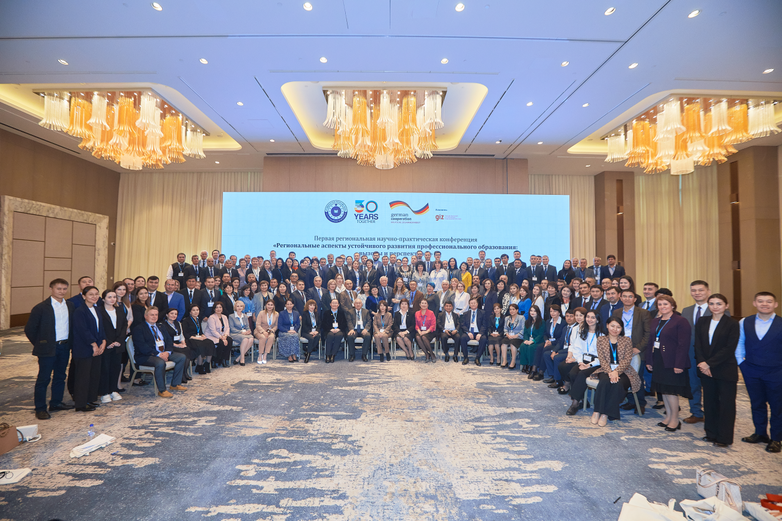Modernising TVET in Central Asia
Vocational training for economic growth sectors in Central Asia
-
Commissioning Party
German Federal Ministry for Economic Cooperation and Development (BMZ)
-
Country
-
Lead executing agency
More
-
Overall term
2021 to 2025
-
Products and expertise
Economic development and employment
Context
In Central Asia, almost 30 per cent of the workforce is employed in agriculture. The further processing of agricultural products is a major growth industry, with food accounting for an increasingly large share of the region’s exports.
As a result, there is strong demand for young people with suitable training to support the food processing industry and the transport, storage and distribution of food. By extension, qualified technical and management personnel are also highly sought after in the logistics industry.
Objective
The TVET systems in Central Asia train specialists and managers for the food processing industry and logistics sector.

Approach
The project promotes modern TVET in the food processing and logistics sectors in Central Asia. To this end, it is introducing international quality standards, involving businesses in the process and establishing dual vocational training courses.
This project takes a two-pronged approach:
- It provides support with educational reforms, advising the relevant ministries on their development. It also promotes cross-border cooperation to modernise and harmonise education systems in Central Asia. Those responsible for the sector share their country’s experiences with educational reforms and dual vocational training programmes. This promotes mutual learning across national borders.
- It works with vocational and higher education institutions as well as professional associations to develop new training courses for the food processing industry and the logistics sector. Together with private providers, the project develops and organises training courses for technical and management personnel, for example on environmentally friendly food production and logistics.
Environmental awareness and women’s empowerment are a particular focus of all project activities.
Last update: July 2023





